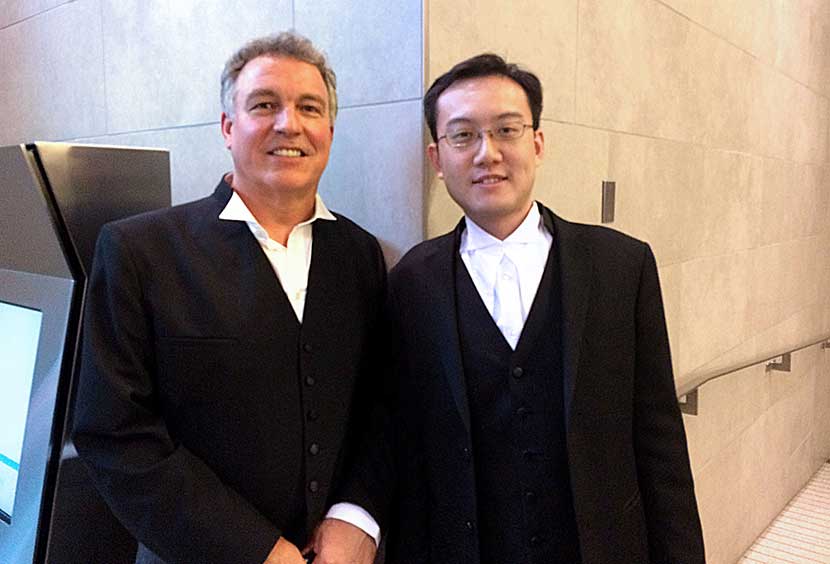
Left to right: Chris Tollefson, Anthony Ho
Litigation
Litigation can be costly, risky and unpredictable. Many say litigation should only be undertaken as a last resort. For this reason, law schools tend to extoll the virtues of alternative dispute resolution and imbue their students with the notion that litigation should be avoided at all costs.
At CELL, we take a somewhat different view.
We believe that litigation is central to the lawyer’s craft and a fundamental feature of our democratic system. And we believe that sometimes litigation is the most powerful and effective way to advocate for environmental interests.
With the privilege our legal system bestows upon lawyers to represent their fellow citizens comes the responsibility for learning how to perform that role fearlessly and effectively. Litigation, and in particular public interest litigation, demands a complex suite of skills that are difficult to acquire and often must be deployed under highly challenging conditions. For the most part, these skills cannot be learned from books or in a regular classroom setting. Most law schools are unable to make a large investment into teaching core litigation skills. Consequently, most law students graduate with, at best, a fleeting exposure to real world litigation.
A central purpose of CELL is to fill this gap in the education of junior lawyers and law students through a range of learning opportunities focused on public interest litigation (see Learning Experience).
Broad social benefits flow from ensuring that the next generation of lawyers gain competence in and are inspired to pursue public interest litigation work. Public interest litigation plays a critical role in articulating and protecting our shared values. To remain robust concepts with real world meaning, foundational legal principles like access to justice and the rule of law need effective champions.
The realities of litigation in the world of public interest environmental law underscore the importance of investing in training and mentoring tomorrow’s litigators. Public interest environmental cases tend to involve complex and nuanced scientific issues. Frequently, they are cases where the ecological and human stakes loom large, and where the consequences of short-sighted governmental decision are difficult to reverse. Compounding the challenge for public interest litigators is that the political and legal status quo can often be effectively defended through sheer inertia, diminishing the incentive for powerful private and public interests to seriously consider settlement or compromise.
Ultimately, however, public interest environmental litigation is a primary means for holding governments accountable under the rule of law for the commitments they make under environmental statutes and regulations. It is also a primary vehicle through which emerging scientific knowledge, and key environmental concepts such as the precautionary principle and the polluter pays principle, acquire traction and legal meaning. The courtroom is and will remain an important vector of scientific knowledge and environmental principles.
At CELL, we will reach out to the next generation of public interest environmental lawyers while they are still at law school or in their early years at the Bar. By strategically engaging with tomorrow’s environmental defenders at this critical stage of their professional careers through intensive joint work on important public interest environmental law cases, we believe that CELL can generate a wide range of profound and long term benefits.
To do this, CELL brings together rising stars and respected leaders from the litigation bar and from academe. It is a team that, we believe, many law students and junior lawyers will want to work with and learn from.
CELL has the experience, resources and vision to make a real difference to the practice of public interest environmental law in Canada, now and in the future. We hope you will stay informed about our work, and considering supporting us.
